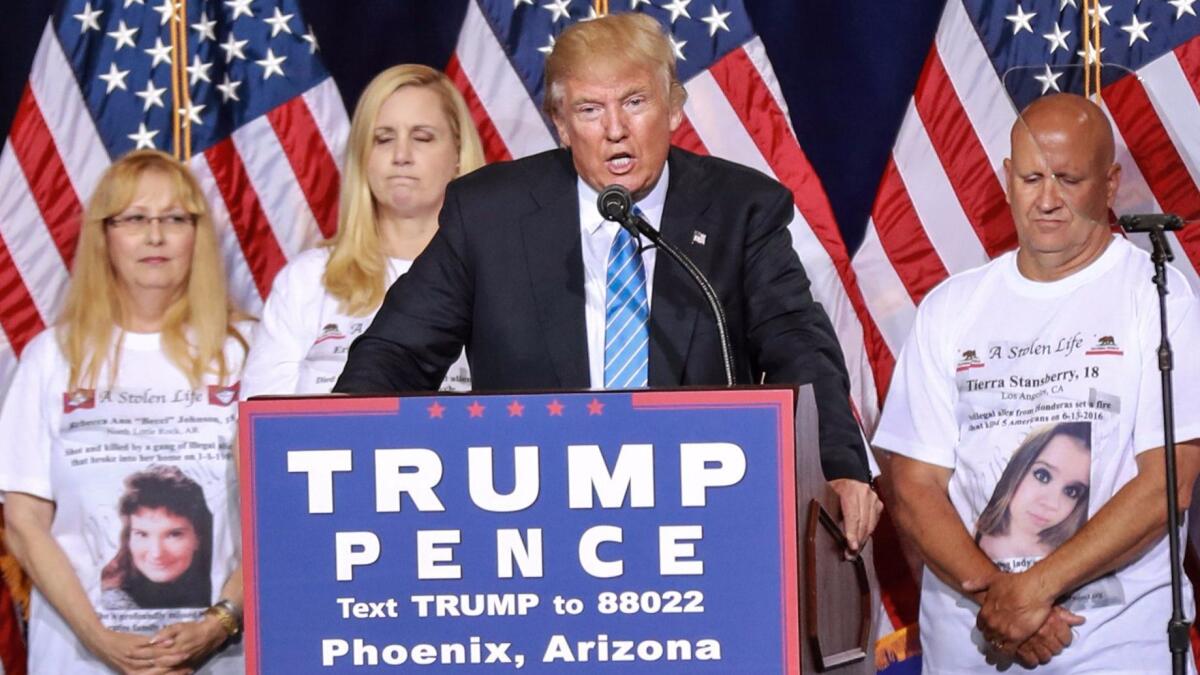‘Xenophobia’ is the word of the year for 2016, says Dictionary.com

Dictionary.com has selected “xenophobia” as the 2016 word of the year, citing the anti-immigrant rhetoric of U.S. President-elect Donald Trump and the United Kingdom’s Brexit vote to leave the European Union as reasons for its choice.
In a news release, the online dictionary said that searches for the word, which it defines as “fear or hatred of foreigners, people from different cultures, or strangers,” spiked after the Brexit vote and after a speech in which President Obama used the term to describe Trump’s positions on immigration.
“Xenophobia and other words tied to global news and political rhetoric reflected the worldwide interest in the unfortunate rise of fear of otherness in 2016, making it the clear choice for word of the year,” explained Dictionary.com Chief Executive Liz McMillan. “While we can never know the exact reasons why xenophobia trended in our look-ups this year, this reflects a desire in our users to understand the significant discourse surrounding global events.”
The company also cited other global events as reasons for its selection, including the rise of the so-called alt-right, the Syrian refugee crisis and the decision by some French cities to ban “burkinis,” full-body swimsuits worn by some Muslim women.
“This year in the United States we saw the rise of the alt-right, white nationalism, and other ideologies that promote hate, especially directed toward Muslims, Latinos, Jews, trans and queer communities, black America, and other nondominant groups,” the company noted in a blog post. “On November 9, the day after the U.S. presidential election, the term xenophobia spiked in lookups on Dictionary.com, and, according to the Southern Poverty Law Center, there has been an increase in hate-based incidents since election day.”
The word “xenophobia,” which first appeared in English in the late 19th century, was also among the most searched-for words in the Merriam-Webster online dictionary after the U.S. election, along with “bigot,” “fascism,” “racism” and “misogyny.”
Earlier this month, Oxford Dictionaries selected another word with political overtones, “post-truth,” as its word of the year. The publisher defines the adjective as “relating to or denoting circumstances in which objective facts are less influential in shaping public opinion than appeals to emotion and personal belief.”
“Post-truth” beat out other words related to current events, such as “Brexiteer,” “alt-right” and “woke,” for the honor.
Robert Reich, the former secretary of Labor and a vocal critic of Trump, commended Dictionary.com for its choice.
“Dictionary.com is right to make xenophobia the word of the year, but it is also one of the biggest threats we face,” Reich said. “It is not a word to be celebrated. It is a sentiment to be fought.”
More to Read
Sign up for our Book Club newsletter
Get the latest news, events and more from the Los Angeles Times Book Club, and help us get L.A. reading and talking.
You may occasionally receive promotional content from the Los Angeles Times.






